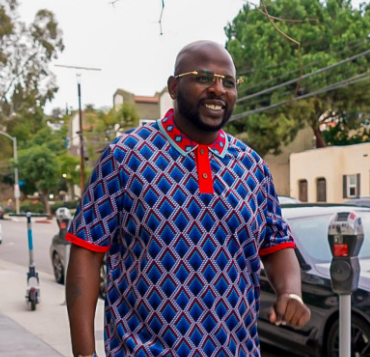-
play_arrow
On The Street On The Air | Kaya 959
Video games and kids: How much screen-time is allowed?
By: Natasha Archary
When your child starts playing video games, as a parent you worry about how much screen-time to allow and just how these games affect your child’s development.
It’s almost as difficult to manage as their TV time. What they watch, when they watch, how long they watch, everything needs to be monitored.
Parenting today versus when we were parented is a lot trickier. With technology at their fingertips, kids today spend more time in front of a screen than ever before.
Portable video game consoles and gaming apps are equivalent to opening up a world of gaming options. But how much is too much for those little minds?
What does research say?
As with everything in life, there are contrasting scientific findings around video games and the effects they have on children. Victoria L. Dunckley, M.D covered the negative effects of video games and a child’s brain.
In her article pubished on Psychology Today, Dunckley touches on how games can overstimulate the nervous system and manifest into dysfunctional behaviour. Hindering sleep and causing cognitive and “short circuiting” the frontal lobe.
On the other hand, Professor of Informatics at UC Irvine, Constance Steinkuehler, emphasises that most research embraces the idea that video games are actually good for a child. She acknowledges that, whilst video games can be addictive, there isn’t enough meaningful evidence to support the theory that playing video games causes violent behaviour.
Drawing the line
Parents share concerns over games making children anti-social, causing violent behaviour and restricting children to a sedentary lifestyle. With children opting to plonk down on the couch instead of running around outside and using their imagination.
The saying “everything in moderation” seems apt in this instance. Children lead such structured lives under our watchful eyes that video games could be just what they need to unwind and work their minds.
Provided the type of games are age-appropriate, perhaps there’s a reason for the opposing studies. We tend to look for something to blame when children act out and it looks like we’ve found the next target on our take down list. So where do you draw the line?
Guidelines
In an ideal world, children would spend their time outdoors, feeling the sun on their skin as they kick a soccer ball around the neighbourhood.
Building wooden forts and playing princess with their friends until the street lights come on. But we live in the real world. The issue of safety is now something many parents do not compromise on. Which is why many parents don’t mind having their child on the couch, with a tablet or portable console in hand.
There are no official guidelines on screen-time in South Africa. It’s not a concern or priority for government or the education department.
However, the American Academy of Paediatrics, recommends no screen-time for children under the age of 18 months. Followed by a maximum of one hour a day up to the age of five. There are no suggested timeframe for children over six but we can agree that doing anything for more than a few hours a day is not a good idea.
Monitoring
Like movies, video games carry age ratings and as a parent it’s important you pay attention to these. If you wouldn’t allow your six-year-old to watch an 18-age restricted movie, they shouldn’t be playing an 18-age restricted game. It’s easy to lock apps and games that are over their age classification and there are so many gaming genres today, that it’s a myth all games are violent shooting types.
Start with colour identifying, puzzle type games and then upgrade to some of the classics you may have played as a child. With remakes to old favourites, it could also make for special bonding time. Your child may not be interested in the original versions because the graphics back then were horrible and the games were much more difficult to get through.
Maybe it’s time that we change the narrative on parenting and instead of saying no, we say okay but just for a little while. But of course, you are the only one who has a final say in how you raise your child.
Also read: Parenting: Six going on sixteen
Written by: Natasha
Parenting Screentime TECHNOLOGY Video games
Similar posts
-
MORE ARTICLES

“We are not safe,” Cassper voices concern over crime in Mzansi

Powerball Results: Draw Friday, 26 April 2024

Msaki returns with new music

WATCH: CEO of Known Associates Entertainment and Film producer, Tshepiso Chikapa-Phiri on movie productions

After 30 years of democracy, are we more united or divided?
-
QUICK LINKS
UpComing Shows

The Hive
With Bonolo "Bee Sting" Molosiwa
Every "Hive" needs a Queen B and Bonolo "Bee Sting" Molosiwa is Kaya 959's honey who brings in the money. With her bubbly personality, infectious laugh, Bee Sting radiates positive energy which is all you need to get your weekend off to the best start. Don't miss the Afrobeat Dancehall Ragga (ADR) Top 10 on The Hive with Bee Sting every Saturday from 18h00 - 21h00.
close
Tune and Chill
with Tyroline Franks
Tune and Chill with Tyroline Franks on Kaya 959. Weekends, Saturday and Sunday, 15pm-18pm.
close
On the Beat
On the Beat with George Manyosi on Kaya 959. Saturday's, 18pm-21pm.
closeConnect with Kaya 959
DownLoad Our Mobile App
© 2024 Kaya 959 | On The Street On The Air










